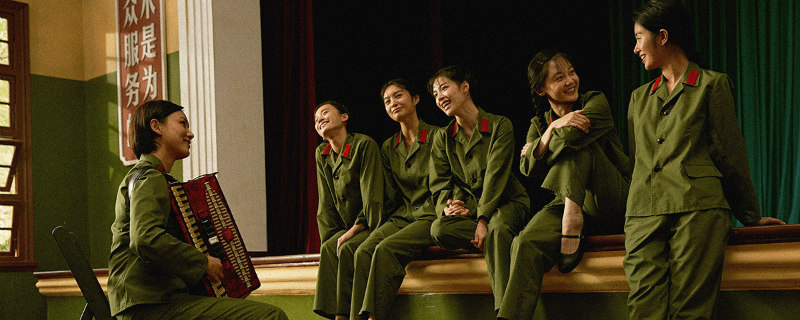
Review by Musanna Ahmed
Directed by: Feng Xiaogang
Starring: Xuan Huang, Miao Miao, Caiyu Yang, Elane Zhong, Xiaofeng Li

It’s the early '70s and the Cultural Revolution of China is happening at full scale. He Xiaping (Miao Miao) and Liu Feng (Huang Xuan) are two recent recruits of the performing arts troupe within the People’s Liberation Army in the southwest area of the country. Xiao Suizi (Elane Zhong) is a dancer in this troupe and also the narrator of the movie, her focus on the pair of freshly enlisted dancers. Her narration is subdued and somewhat melancholic as she foreshadows the loss of youth that all the characters will go through in the engulfing story of Feng Xiaogang’s drama, Youth.

Playing sort of like Jia Zhangke’s Platform, if it was closer to the epics of Steven Spielberg and David Lean, Youth follows Xiaping and Feng over three decades as they find their lives enveloped by war, love and other personal troubles. Xiaping’s father has been sent away after being regarded as anti-Communist. Liu Feng is heartbroken after being rejected by a woman he greatly loves, Dingding (Caiyu Yang). The movie is both sweeping and intimate in equal measure.
Harkening back to the melodramas of classic Hollywood, Youth is unabashedly sentimental and Xiaogang cares a great deal for his characters, maybe sometimes too much as he guides us in how exactly to feel with soundtrack cues throughout the film ranging from romantic to perilous. The most perilous scene in the film, the technical centerpiece, is a bloody war scene shot in one take. The filmmaker struck a chord with arthouse audiences with the dazzling visuals of I Am Not Madame Bovary, but his direction of the camera in Youth is sparingly flashy, save for this scene. Occurring in the Sino-Vietnamese war, which isn’t something we really learn about in a geo-political capacity, we’re in the heart of the battlefield with Liu Feng as he traverses no man’s land. Bullets, bloodshed and bombs in an unbroken 10-minute take capture the hellishness of the forgotten brutal war.

Following the end of the war, the film feels a bit like it’s played on fast-forward as it tries to cover an expansive time of the characters’ post-war lives. In the first half, it was quite fascinating to see these characters situated in their historical context - the dancers all serve the common propagandistic purpose but deeper down they’re conflicted by various occurrences in their life, which affects their performances and how we watch them. Once the battle is fought and done, Youth settles to be the average post-war PTSD flick. Maudlin moments are all-too-familiar, like when a group of policemen confront Feng but stop to praise him after they discover that he’s a veteran, or when a familiar music cue recalls one of the dancer’s abilities to suddenly dance again, remembering every move.

This is Xiaogang’s Spielbergian attempt at creating a historical blockbuster from China, and while he doesn’t have the delicacy of Spielberg (who’s had many more years to perfect his craftsmanship) and could have been a little more audacious as we’ve seen him be in previous films, his attempt with Youth is very admirable and universally accessible, much like the works of Hollywood’s great filmmaker.

Youth is on DVD/blu-ray/VOD May 7th.

